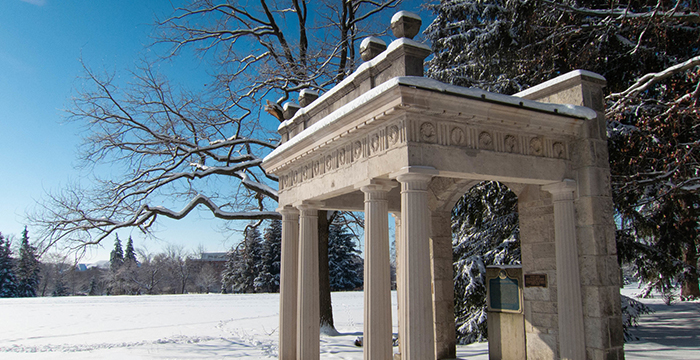Click on a year below to open that's year's list of Learning Enhancement Fund (LEF) recipients OR view the current year's LEF Award recipients.

John Donald
$31,500 | Enhancing professional skill development in engineering courses using micro-learning
To increase student engagement and enhance student learning in professional skills concepts such as ethics and leadership, which compete for attention with the technical content in the engineering curriculum, a series of micro-learning modules will be created and implemented using the University of Guelph learning management system, Courselink. The micro-learning approach will be applied in both a large introductory engineering design class, and a smaller graduate level class in engineering leadership. The effectiveness of micro-learning will be assessed through student surveys and focus groups. Results of the project will inform broader application of micro-learning at the University.
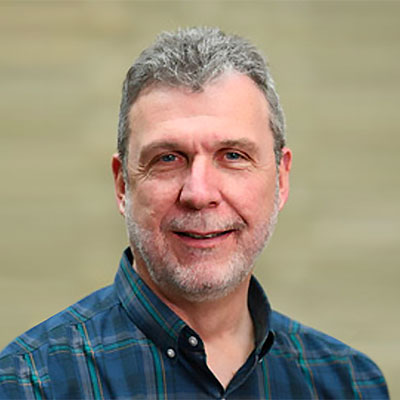
Brian Husband
$24,787 | Promoting career readiness among second year students in the college of biological science
Producing science graduates in high demand in the workplace for their breadth of knowledge and skills, leadership and workplace sensibilities, and business acumen, is a strategic priority in the College of Biological Science (CBS). To advance this goal, CBS launched a blended, non-credit course for second year students (N=800-1000) that promotes self-awareness and reflection on career aspirations, provides opportunities and resources for career exploration, and engages students in career planning and self-marketing. In this proposal we will collaborate with OpenEd, Library Services, Alumni Affairs and Development, and Co-operative Education & Career Services to increase student engagement, accessibility and scalability by:
- enhancing the online interface and learning modules with video, audio and other interactive elements
- incorporating more small group activities, use of small group peer facilitators, interactions with external alumni, and recognized teaching objects for professional development in the face-to-face sessions
These outcomes will ensure the course aligns with recognized EL activities on campus.
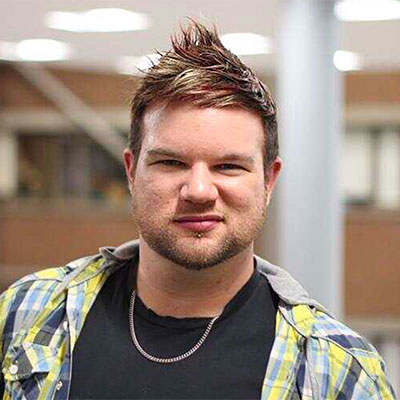
Tommy Mayberry
$26,641 | The science library project/Le projet de bibliothèque scientifique
The Science Library Project/Le projet de bibliothèque scientifique brings together public outreach, experiential learning, and cross-institutional collaborative learning between French (at the University of Guelph) and Biology (at the University of Pittsburgh at Bradford) to foster in our students a greater understanding and appreciation of the scientific content within their courses (Pitt-Bradford) and the practices and processes of translation (Guelph). Biology students at Pitt-Bradford create and self-publish children’s books based on key curricular science content, and French students at Guelph translate these books to create more linguistically accessible, inclusive, and intercultural children’s books for both Guelph and Pitt-Bradford communities.
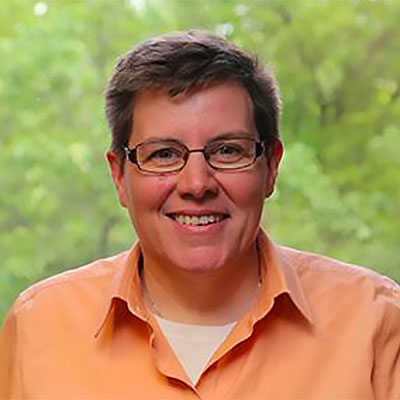
Coral Murrant
$15,000 | Students-as-partners in educational development: An open educational approach to experiential learning
We have launched a unique “students as partners” project to develop an open e-textbook. This project recognizes students as experts in their own learning, allowing them to contribute their voices to the larger academic conversation. In an experiential learning (EL) experience, small cohorts of undergraduates enroll in an independent student course and are tasked with finding and evaluating open educational resources and integrating them into a larger textual resource. Engaging students as partners ensures the outputs will be learner-centered and high-impact. This process will take students through a simulated workplace experience that helps them develop skills in pedagogy, professionalism, research, and project management.
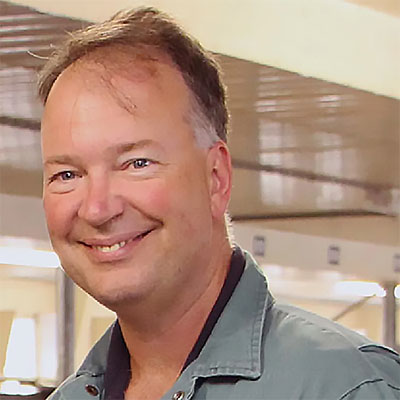
Todd Duffield
$31,400 | Video-based approaches to enhance student learning in food animal health management
The objective of this project is to develop a unique video series to support conventional course materials and provide students with a virtual learning experience. Innovative videos will be developed to enhance student understanding of the livestock production cycle in various food animal species. Videos will include an on-farm interview with a commercial producer and a veterinarian to provide insight into their perspectives and roles on the farm. This will be followed with a narrated video highlighting the species-specific production cycle. Following initial video development, an evaluation of the impact and usefulness of the videos will be completed.
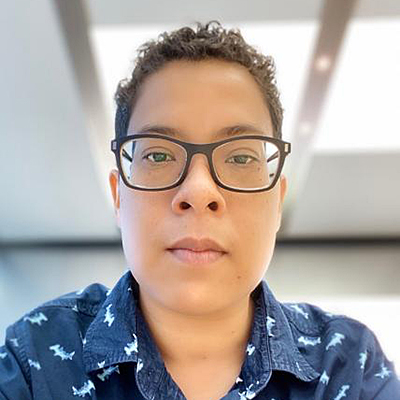
Jade Ferguson
$35,000 | Summer undergraduate research experience (SURE) program
The pilot project of the Summer Undergraduate Research Experience (SURE) Program is designed to provide an opportunity for Students of Colour to further develop their “scholarly habitus” within a diverse and inclusive learning environment that affirms their prior identities, communities and experiences. The SURE Program will provide qualified undergraduate students with a four-week immersion in an academic, professional setting and a community-engaged learning experience. The aim of the SURE Program is to develop the “scholarly habitus” of Students of Colour through developing their confidence as scholars, cultivating a passion for scholarship, and identifying as an emerging scholar.

Brian Husband
$39,763 | Enhancing integrative and experiential problem solving in the biological science major
The Biological Science major is a large undergraduate program in the B.Sc. with untapped opportunities to explore the breadth and diversity of biology including health, molecular and biodiversity disciplines. The College of Biological Science, in collaboration with CBaSE (Centre for Business and Student Enterprise), OpenEd (Open Learning & Educational Support), and the Library, will develop a 4th year capstone experience restricted to BIOS students. It will promote independent learning, employability skills and application of biological science to societal problems using a work-integrated model. Working with a client and under the guidance of a faculty mentor, student teams will function as research consultants to address an authentic problem or need using their interdisciplinary biological knowledge and skills. Students will be introduced to best practices in project management, teamwork, problem solving and digital communication, and will learn to apply their skills to produce a product for their client and engage in deliberate reflection of their own development and its relation to curricular and community needs.

Shauna McCabe
$21,040 | The usable knowledge project – Art, education, impact
This initiative activates the Art Gallery of Guelph (AGG) as a vital platform for experiential learning. Building on the leadership the gallery has offered to the development and delivery of curriculum related to Indigenous art practices as well as its oversight of the University’s art collections, this pilot project moves students beyond classroom-based art historical and museum studies to actively engage in and shape critical museum processes. Through individual and collaborative inquiry augmented by artist engagement, participants will ultimately select and propose an artwork by a contemporary Indigenous artist for acquisition and public presentation, supporting knowledge-sharing while enriching and diversifying the University of Guelph’s art collection.
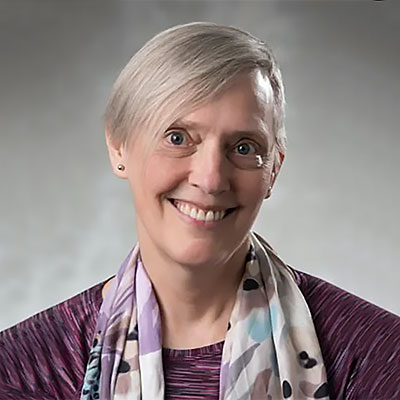
Judi McCuaig
$35,300 | An experiential approach to teaching problem-solving
Employers increasingly demand exemplary problem-solving skills especially for tech-focused employees. Unfortunately, the problem-solving skills of first and second year post-secondary students are often deficient. The proposed experiential curriculum for teaching problem solving skills to third and fourth semester University students using case studies taken from their domain of study can be adapted to any domain and will provide students with metacognitive knowledge about their own problem-solving approaches.

Daniel Ashlock
$16,000 | Role playing for disciplinary literacy and recruitment
The project will develop a role playing game and encounter modules that will introduce the vocabulary and practice of nanoscience to new and prospective students. This will serve as both a source of disciplinary literacy for incoming students and as a recruiting tool for the nanoscience program. While nanoscience is the initial focus the project will be extended to at least statistics and engineering. Gamification of the introduction to nanoscience is a rapid, memorable and effective method of introducing students to any complex discipline.
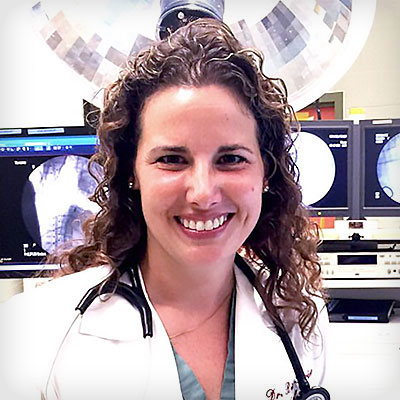
Bridgitte Brisson
$24,950 | Video recording of surgical skills examinations as a teaching tool: an opportunity for reduced student stress, improved performance and self-reflection
Practical skills examinations have been shown to evoke marked nervousness and stress in the students being assessed, above that associated with a traditional written examination. This could have implications on student performance, and mental wellness. Hence, it is important to investigate alternative assessment methods that can overcome these challenges, whilst remaining effective. This study aims to: 1. Investigate the perceptions of stress amongst novice surgeon students during a simulated OSCE surgical skills examination; 2. Determine whether stress levels during a simulated OSCE examination correlate with novice surgeon student performance; 3. Determine if video recording of skills testing can reduce stress in novice veterinary students compared to traditional ‘in-person’ evaluator-assessed OSCE examination; and 4. To evaluate the agreement between traditional in-person and video-recording ratings. If successful, video testing could be offered to students across the DVM curriculum and could be applicable to other disciplines where skills-testing is used.

John Donald
$30,000 | Creating engaging video content to support curriculum delivery in large design classes
To remove barriers and develop capacity for faculty and teaching assistants to create relevant video material to support active learning in large design classes, a Configurable Video Production Studio (CVPS) will be established. A variety of video content will be created and applied in four core design courses in the School of the Engineering with class sizes of 250 to 450 students. Workshops and video creation opportunities will also be offered to faculty teaching other courses. The effectiveness of the CVPS in supporting the creation of video based active learning opportunities in large classes will be assessed and reported.
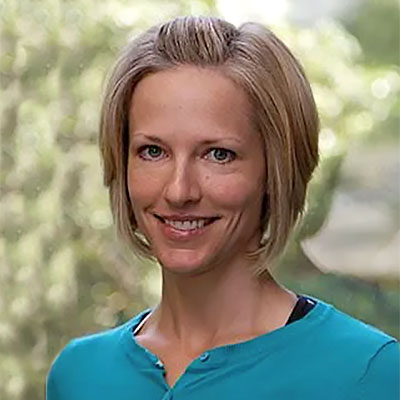
Genevieve Newton
$12,100 | An instructor’s guide to using student evaluations of teaching to improve teaching effectiveness in the College of Biological Sciences. Phase 1: How instructors use student evaluations of teaching
The BioEd Research Hub is a newly formed faculty group in the College of Biological Science (CBS) active in the scholarship of teaching and learning. We have a research program to study measures of teaching effectiveness as a means of improving student learning, which includes maximizing feedback from Student Evaluations of Teaching (SET). These evaluations are intended to provide meaningful and insightful feedback about teaching effectiveness to instructors, yet there is limited knowledge regarding how instructors use SET for formative development. In our current application, the BioEd Research Hub proposes the first phase of a longer-term project to develop a ‘Guide for instructors’ regarding the best use of SET to improve student learning. We propose to determine how SET feedback is perceived, utilized and how it informs teaching practice by instructors across all departments in CBS using a mixed methods approach including focus groups and surveys. The findings from this study will inform the next phase of our student involving student perceptions of SET questions and our plan to study the impact of our Guide on teaching improvement.
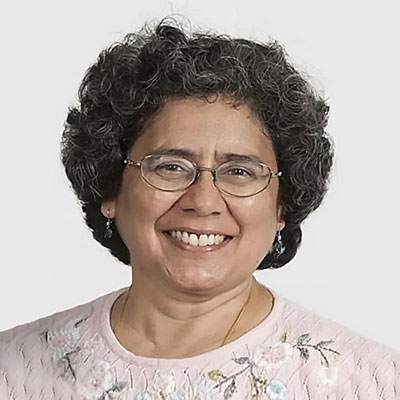
Asha Sadanand
$24,000 | Proposal for Maple TA in second year economics statistics
The literature shows that large first and second year classes have the potential to: improve learning outcomes, generate cost savings, better access underserved students through active learning, allow for individual learning pace, provide immediate online assistance for individual questions and provide uniform delivery of the class material under various possible alternative staffing. We plan to utilize the Supplemental Model where we retain the traditional lecture for introducing and illustrating course material, but add a significant technology-based component, using Maple TA, that allows students to learn, practice and reinforce the concepts by working at their own pace through online exercises. The second year class concerned is ECON*2740 (Economic Statistics).
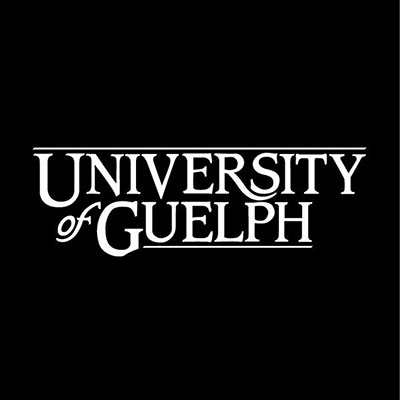
Andrew Skelton
$14,000 | Increasing engagement and enthusiasm for the application of statistical methods in real-world settings using local Open Data
This project will develop a partnership with the City of Guelph and local school boards to use Open Data to create data analysis projects for high school and undergraduate courses. We aim to encourage the use of data to make informed decisions, to expose students to the challenges of independent, open-ended data analysis and to promote the development of a knowledge and data-driven society by increasing statistical literacy among the next generation of policy advisors and researchers. This project will also increase awareness of statistics as a discipline, a major and a profession, thus assisting with recruitment of statistics-focused majors.
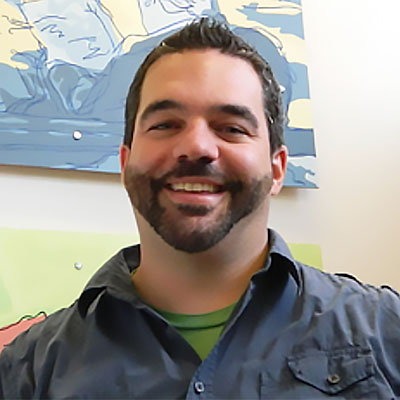
M.J. D’Elia
$25,000 | The virtual learning commons:Addressing undergraduate learning outcomes with short-format OpenEducational Resources (OER)
Open Educational Resources (OER) are learning assets (e.g.courses, textbooks, modules, videos, etc.) that are made freely availableonline to support instructors, students and self-directed learners. This proposal aims to build a series ofshort-format OER that align with the University’s undergraduate learningoutcomes and increase access to engaging resources for academic skilldevelopment. In particular, thisproposal focuses on the application and use of OER within the course managementsystem (i.e. Courselink). Our primarygoal is to ascertain how OER can provide an efficient, effective andsustainable approach to addressing gaps in student learning across campus.

Kimberly Francis
TBD | Scribe Hero: Gaming as a tool for teaching universitywriting
This project proposes to embed game-based, online writinginstruction into large undergraduate courses at the University of Guelph. To doso, this team of researchers is building a game by the name of Scribe Hero.Scribe Hero will guide the students through four stages of game play thatdevelop their writing competencies. Students will be able to customize theiridentities and narrative paths through the project, similar to interacting withan avatar. Working specifically with the first-year Music history course,MUSC*1060 “Amadeus to Zeppelin: Music and Culture I,” as its pilot, thisproject will aid in the development of writing skills while providing essentialsupport to instructors tasked with introducing undergraduates to the world ofuniversity writing.

Matthew Demers and Kimberly Herder (Levere)
$28,700 | Bridging the gap: improvingmathematical preparedness and student experience
Mathematical preparedness has been a longstanding issue in apost-secondary education. Growingenrollment exacerbates this issue providing students with less of theone-on-one help that they need. Thisproject introduces a Refresher course that provides students the opportunity tobuild their skillset. An Email Feedbacktool will help students to feel less “like a number” in large classes whileproviding individualized feedback. Theuse of Crowdmark, an online marking platform, will improve efficiency ofgrading, feedback and student privacy.The introduction of this assessment technology will greatly help intracking learning outcomes and reducing academic misconduct at the Universityof Guelph.
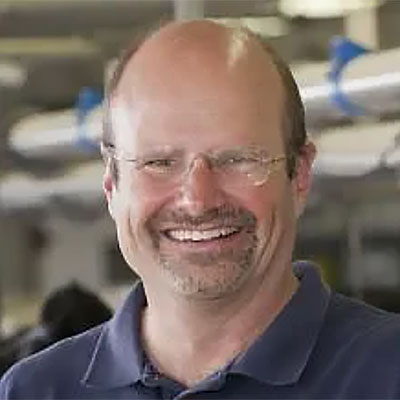
David Kelton
$10,000 | Bridging udder health to life: usingreal-space animation and data visualization to facilitate learning inundergraduate and veterinary students
Our goal is to develop and evaluate a teaching tool tosupport conventional course materials and enhance learning outcomes ofundergraduate and veterinary students at the University of Guelph. An innovative video will be developed andhoused on a unique webpage aimed at enhancing student understanding of milkquality in Ontario dairy herds and the impact of evidence-based management onhealth. The video uses animationssuperimposed in real-space to create an interactive on-screen environment. This video will combine the tangible andrealistic value of on-location videos with the creative value of animated andevidence-based storytelling to improve student learning.
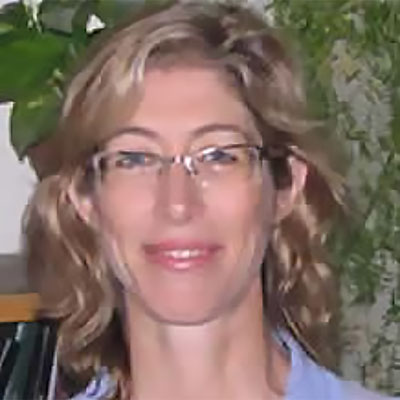
Carolyn Kerr
$36,123 | Optimizing learning through simulation:development of models suitable for skills training and evaluation offeedback methods during simulation training
The goal of the project is to optimize the use of simulationtraining for the purpose of achieving learner competencies in skills core tothe DVM curriculum. The specific objectivesare to develop models that permit learning through simulation training and todetermine learner’s preferences, level of competency and confidence withdifferent simulation learning environments.Using 3-D printing technology, multiple models that permit repeatedsimulation exercises will be created.Models will be incorporated into the DVM curriculum for student learningin years one to four. A prospectivestudy evaluating outcomes with varying feedback methods during simulationtraining will be conducted.
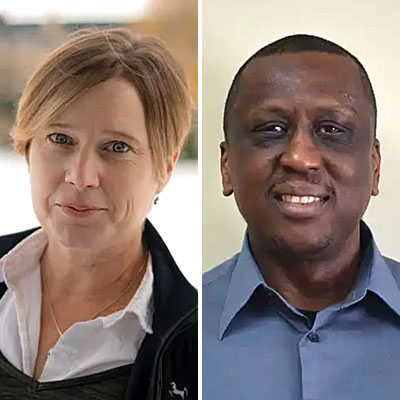
Joanne O’Meara and Martin Williams
$49,800 | Going back to our roots – Updating physics forlife sciences for a truly personalized system of instruction
The Personalized System of Instruction (PSI) allows studentsto progress through a course at their own pace.We have taught Physics for Life Sciences with elements of PSI for manyyears however increasing enrolment is making it difficult to provide the bestpossible individualized guidance. Wepropose to bring the personalized back to PSI with up-to-date technology. Registered students will gain 24/7 access toall course materials, including lecture content and online video modules,enabling a flipped classroom approach.This will allow class time to be devoted to conceptual discussions,interactive demonstrations and problem-solving skills development.
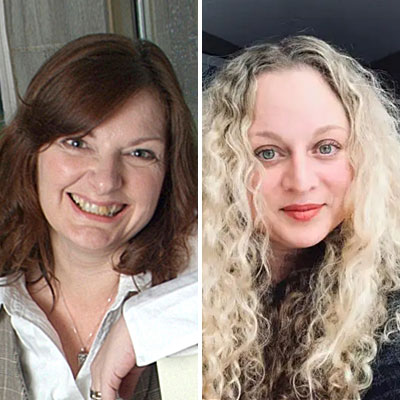
Sally Hickson and Christina Smylitopoulos
$10,000 | The University collaborative experiential exhibition (UCEE) project
Exhibitions drive research.They provide environments for critical reflection on objects and theirmultifarious contexts; stimulate meaningful dialogue between objects and theiraudiences; and intervene in and reflect upon the socio-political values thatdrive the production, circulation, reception and interpretation of things thatoccupy our world. The UniversityCollaborative Experiential Exhibition (UCEE; pronounced ‘you see’) project aimsto create partnerships between disciplines, faculty, collections and studentsto provide unique, quality learning experiences for University of Guelphundergraduates. Under the supervision ofa faculty member from the School of Fine Art and Music, students will research,thematize and interpret (in the form of exhibition copy, public talks andonline platforms) objects drawn from various collections both on and offcampus. The exhibitions, which will beinstalled in small, portable cabinets in high traffic areas of the campus, willstimulate engagement with objects and their significance to intellectualinquiry.
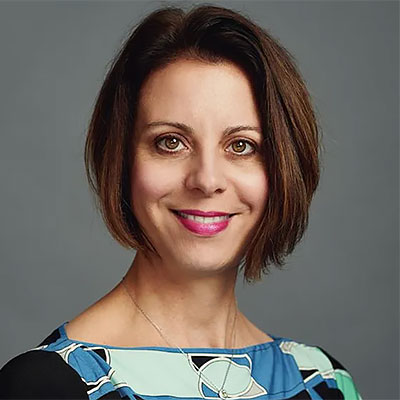
Andrea Buchholz
$10,628 | Active and authentic learning: An interdisciplinary model for Applied Human Nutrition and Theatre Studies
Simulated patients (SPs) are live medical actors who interact in real time with student clinicians in scenarios created by course instructors. Scenarios vary widely, offering a variety of opportunities for learning, for both SPs and student clinicians. We propose an interdisciplinary learning collaboration in which six to eight students in the School of English and Theatre Studies (SETS) who are enrolled in an experiential learning course, act as SPs for nearly 100 undergraduate Applied Human Nutrition (AHN) students enrolled in clinical nutrition courses. This mutually-benefitting collaboration provides SETS and AHN students with learner-centered, active and high-impact educational experiences.
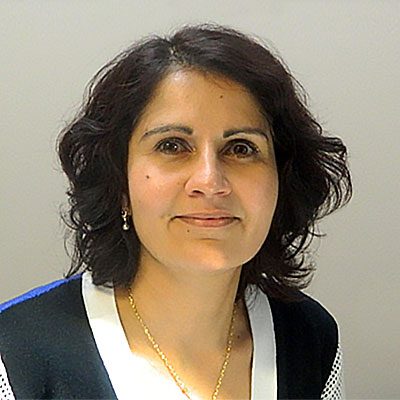
Deep Khosa
$36,000 | Collaborative computer assisted case based learning: the use of an effective and efficient learning tool in multiple settings
As physical resources and the availability of real-life teaching cases in a clinical education setting are placed under greater pressures, the need for an effective, alternative way to help students work through complicated clinical case-based material becomes more urgent. Case-based learning (CBL) is an effective way for students to develop a deep understanding of complicated, intertwined medical knowledge that is necessary to train veterinary students. This proposal aims to use the software Articulate Storyline to help students work through realistic clinical case material, with the outcome of giving all students the opportunity to use CBL as an effective learning tool.
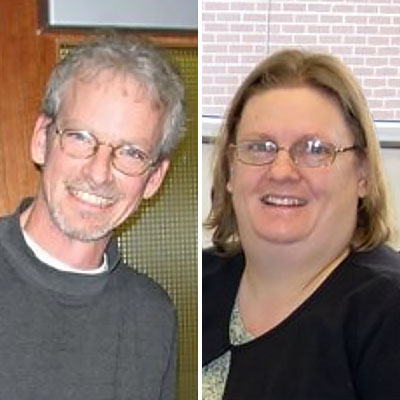
Rob Reed and Kate Stuttaford
$43,500 | Development of a new series chemistry safety courses
This proposal addresses the legal requirement to provide safety training to all students handling hazardous materials. On February 11, 2015 the new WHMIS 2015 legislation became law incorporating the Globally Harmonized System of labeling and Safety Data Sheets (SDS). The creation of a new on-line series of Safety Training modules for science students is proposed. These modules will be tailored to science students’ needs by academic level incorporating WHMIS/GHS, Occupational Health and Safety Act, Laboratory Safety, Risk Assessment, Hazard Mitigation and Due Diligence.
These training modules will update, supplement and augment the broad based generic training presently available through Environmental Health and Safety at the University of Guelph.
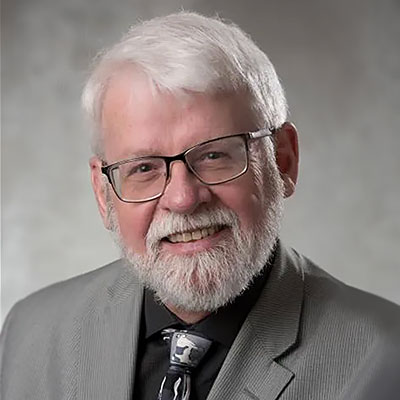
Gary Umphrey
$33,760 | A data set library for teaching undergraduate statistics featuring University of Guelph research
A Guelph data library will be developed to strengthen undergraduate statistic education at the University of Guelph. Data sets will come from University of Guelph researchers so that students see how statistical methodology is employed to draw quantitatively based conclusions in a wide variety of academic disciplines, and how statistical thinking permeates all areas of academic investigation. An ancillary benefit of this project is that making the data available via the internet will potentially facilitate teaching at other institutions while also drawing international attention to research conducted at the University of Guelph.
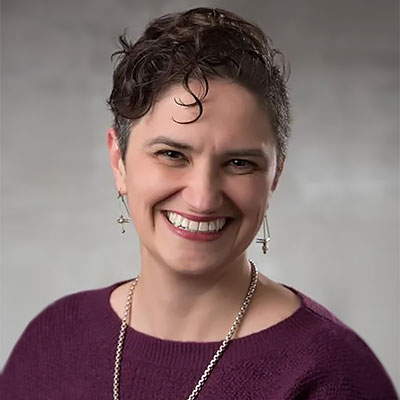
Julie Vale
$9,200 | Synchronous, on-line chats to enhance active lecture engagement within large engineering lectures
Engaging students in large lectures (~400 students) is challenging, but active learning techniques are recognized as appropriate remedies. Here, we propose assessing the use of advancing technologies around online chatting as an additional active learning approach. Using online chatting leverages student’s virtually universal use of electronic devices (smart phones, tablets, and laptops) in the classroom. Research questions to answer include whether a moderator is necessary, does the technology become too distracting, and will such a chat be effective across distinct instructional and course styles. This proposal seeks funds for OpenEd technical support, a research assistant, and dissemination.
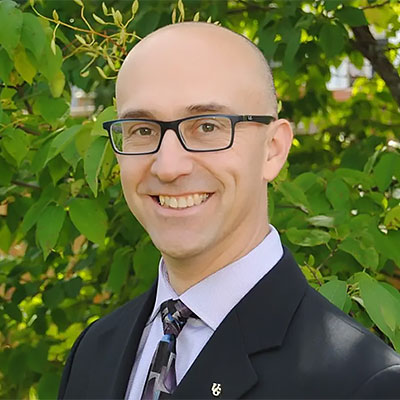
John Dawson
$42,000 | Measuring progression of program-level learning outcomes with online components in MCB core courses
The assessment of learning outcomes (LOs) at the course and program levels provides context of learning for students and instructors and informs continuous improvement; however, measuring learning outcomes is complex. Measuring course LOs through a series of inter-dependent courses permits examination of learning progression through a program. Online assessments and activities allow measurement of course LOs; however, producing online assessments and activities requires significant up-front investment. Our aim is to develop online assessments and activities that measure course LOs for MCB core courses, allowing measurement of program LO achievement and impacting thousands of students each year as a sustainable element of the MCB core courses.

John Donald
$43,000 | Development and implementation of ePortfolios for enhanced student learning and program outcome assessment in the School of Engineering
The School of Engineering (SOE) has established a curriculum improvement framework based on assessment of graduate attributes (i.e. program outcomes) defined by the Canadian Engineering Accreditation Board (CEAB). In the 2013-14 review of program outcomes, the SOE identified that implementing student ePortfolios program wide would enhance student learning, support curriculum improvement and provide a valuable source of information for assessment of graduate attributes. This proposal outlines a 16-month project to implement and assess student ePortfolios for all SOE students. The project will involve multiple faculty members in core engineering design courses in all program years.

Dan Gillis
$25,000 | Undergraduate Trans-Disciplinary Innovation Program
The Undergraduate Trans-disciplinary Innovation Program (UTIP) will bring together senior undergraduate students from across campus to address real-world challenges in a collaborative, knowledge sharing setting. Students interested in pursuing senior undergraduate research projects or theses within each unit will be presented with the opportunity to share and apply their knowledge and discipline-specific skillsets with like-minded individuals, while building innovative solutions to local, regional, and/or global issues. The UTIP will enhance the existing learning objectives of each of the unit-specific senior undergraduate research courses by exposing multidisciplinary teams of students to real-world problems, and by fostering trans-disciplinary learning and innovation.

Wayne Johnston
$1,000 | Research enterprise and scholarly communication
Discovering Biodiversity introduces almost 2,000 first-year students to the challenges and rewards of field research. The proposed project involves development of a data collection app for mobile devices and an accompanying data validation utility. The result will be greatly improved efficiency of data collection, data amalgamation and data validation. Students will get more immediate access to the data for purposes of analysis but, more importantly, the project will encourage students to think more creatively both about how technology can be used and about how field research can be conducted.

Judi McCuaig
$26,600 | Development of a kinesthetic learning space
In 2013 we received an LEF to fund a wildly successful transformation of CIS*1500 Introduction to Programming using Raspberry Pi’s. We propose a new LEF to augment the learning environment for CIS*1500, CIS*2500, and indeed the learning environment for many SOCS courses. This LEF will see the creation of a “Kinesthetic Learning Space” (KLS) to facilitate student experimentation with physical computing. The lab will provide a creative, DIY space where students can gather to create, invent and learn, akin to a “Makerspace”. The Raspberry Pi platform that is used in CIS*1500 and CIS*2500 encourages exploration, curiosity and experimentation which helps students develop the problem solving skills needed to be successful computer scientists. We believe that the KLS will further encourage self-directed learning through the creation of innovative physical computing devices. LEF funds are requested to fund a lab assistant and student research assistants who will develop self-training materials including a library of video clips of learners engaged in tinkering.
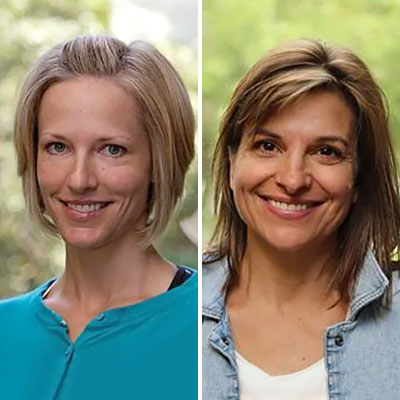
Genevieve Newton and Lorraine Jadeski
$29,000 | Creation and pedagogical impact of audiovisual materials in undergraduate anatomy education
The aim of this project is to create high quality audiovisual materials for use in the human anatomy program which includes courses at the University of Guelph, Guelph Humber and the Anatomy Outreach Program. Although materials will be used primarily to enhance laboratory-based learning, additional fields of study can benefit (e.g. biomechanics, bioengineering, neuroscience). With this proposal, we are requesting funds for the development of the learning materials, the acquisition of production materials and tablets for presentation of materials in the laboratory. The pedagogical impact of the use of audiovisual materials will be measured comprehensively through action research.
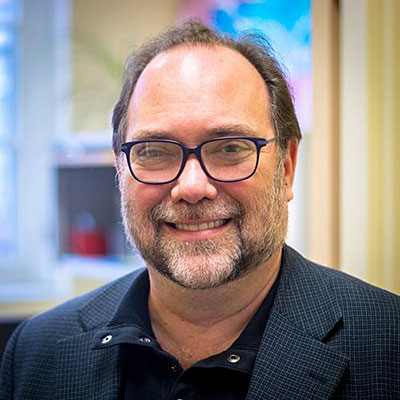
Byron Sheldrick
$40,000 | Developing a blended introductory learning experience in Political Science
This project will lead to the development of a blended/hybrid introductory Political Science (POLS) course. The objective is to create a course that combines face to face (f2f) lectures, online learning opportunities and small group workshop/tutorial program along with more specialized modules and problem-based learning opportunities for both Political Science students and students in the department’s collaborative programs, most notably Environmental Governance (EGOV), Criminal Justice and Public Policy (CJPP) and Public Management (PM).

Don Dedrick
$12,900 | Problem solving in English: Logic in context
The purpose of this project is to develop a program that will enhance analytic literary skills. Specifically, by focusing on rules based in logic and critical thinking we hope to further develop and enhance problem solving skills for speakers of the English language. Although widely used these skills are often underdeveloped – even in students at the university level. In the summer of 2012 “version 1.0” of this program was created. It is our goal to expand the material that this program covers as well as bundle it in the form of a more user-friendly interactive educational software project.

Daniel Gillis
$30,000 | Community-engaged scholarship in the classroom
This proposal will establish community-engaged scholarship within the School of Computer Science’s (SoCS) undergraduate courses CIS3750 and CIS4900. Introduction of local community problems and the subsequent development of open-source software-based solutions will strengthen course learning objectives via the establishment of project-specific deliverables. The proposal also creates a community-engaged scholarship database/website in collaboration with the Institute for Community-Engaged Scholarship (ICES), providing a resource for project selection specific to the SoCS, and other units on campus involved in community-engaged scholarship. The proposal aligns with the Better Planet Project, the ICES and the College of Physical and Engineering Sciences integrated plans.
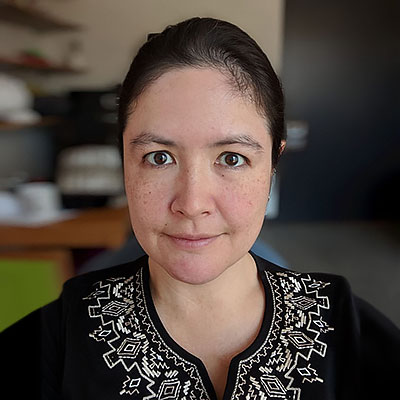
Fiona James
$10,000 | Virtual veterinary neurology: Web-based learning resource
Virtual Veterinary Neurology is a proposal to update the learning experience for undergraduate and graduate DVM students of the Ontario Veterinary College. Capitalizing on emerging technologies, the proposed web-based resource will offer a self-directed multimedia learning opportunity. Virtual patient cases and supplementary resources will be developed to complement material taught in lectures, laboratories, and on the clinic floor. Application of existing knowledge will be required to advance through the case-based clinical approach as taught in the veterinary curriculum, including various self-assessment exercises, thus cognitively engaging students. Effectiveness will be evaluated through existing course evaluation channels as well as usage statistics.

Judi McCuaig
$25,000 | Engagement, self-regulation and experimentation in introductory computer programming
We propose to transform CIS*1500 through the use of the inexpensive Raspberry Pi single board computers an extensive set of self-paced tutoring materials. The Raspberry Pi platform encourages exploration, curiosity, and experimentation, which will help students develop the problem solving skills needed to be successful computer scientists. The tutoring materials will permit students to learn or review any topic on demand. We believe that this new approach will foster self-regulated learning, and increase student engagement. LEF funds will fund student research assistants who will develop materials, and will permit the purchase of set of Raspberry Pi computers and expansion boards for use by teaching assistants and instructors of CIS*1500.
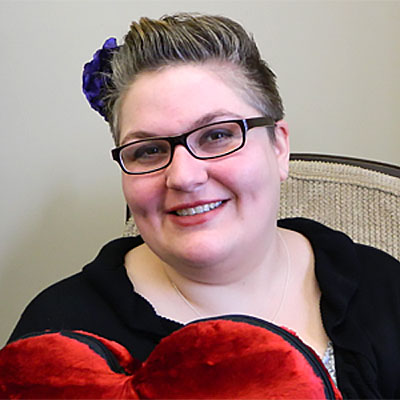
Ruth Neustifter
$20,055 | Creating a community of learning: Harnessing robust conversation through accessible, real-time, low-cost, web-based technology
Large lecture courses are challenging for instructors who strive for live engagement across learning styles and accessibility needs. This proposal is for the development of technology to address this concern through:
- non-anonymous, moderated online live discussion
- anonymous live polling of learning outcomes
- archivable content
- live file and image sharing
- live private messages to the instructor
This set of tools will be web-based, accessible across devices, and available only to registered users. Once created and piloted, this technology would be easily sustainable over different years and courses without removing traditional class discussion or adding costs to students.
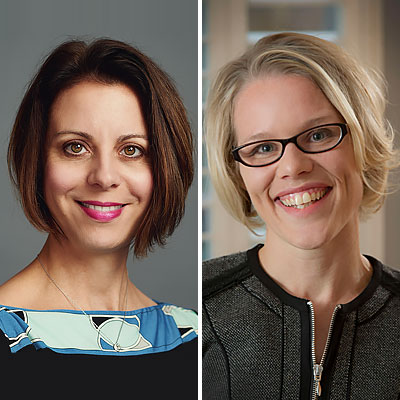
Andrea Buchholz, Jess Haines
$9,950 | Reaching out: support and experiential learning for academically struggling students in a first-year nutrition course
Reaching Out is a program for students struggling in NUTR*1010 (Nutrition and Society), a large service course. We propose to invite those who score under 60% on the first midterm to join a weekly study group facilitated by Jess Haines (F12) and Andrea Buchholz (W13). In addition to providing assistance with test-taking, exam anxiety, and content difficulty, we propose to offer an experiential learning opportunity for which students will be invited to voluntarily undertake body composition and metabolism testing using methods taught in NUTR*1010 curriculum. Reaching Out is designed to enhance student engagement and academic performance by increasing instructor-student interaction and providing a unique experiential learning opportunity to help students apply knowledge. It is a model with potential to be transferable to many units across campus.

James Harley, Marta McCarthy
$18,977 | Strategy for strengthening music foundations
“Strategy for Strengthening Music Foundations” will implement a music lab oriented to supporting and developing foundational music skills. Music majors began a revised program in Fall 2011 with strengthened expectations for achievement in musicianship and materials of music courses. The lab will provide keyboards and workstations for students to work on assignments and developing skills. The lab will also include lab monitors to ensure security and to provide technical support, and will include Peer Helpers, senior students in the program who will provide regular tutorial sessions.

Brian Husband
$24,000 | Enhancing online workshops for skills of inquiry in 1st year biology practicum
The first year foundation in biological science at Guelph was completely revised in 2010 to enhance student engagement and promote deeper learning. Based on a linked course model, the 1st year experience comprises of 3 course modules/themes (health, molecular bioscience, biodiversity science), which are linked through a common practicum. The practicum contains six online workshops for just-in-time introductions to general skills of inquiry (independent learning, scientific method, information management, written communication, oral communication, and numeracy) and a cross-course interdisciplinary project that develops teamwork and integrative thinking. The online workshops have been developed to a basic level and have been tested for two years. We now seek funding to enhance their functionality, interactivity and effectiveness by upgrading them to a professional level.
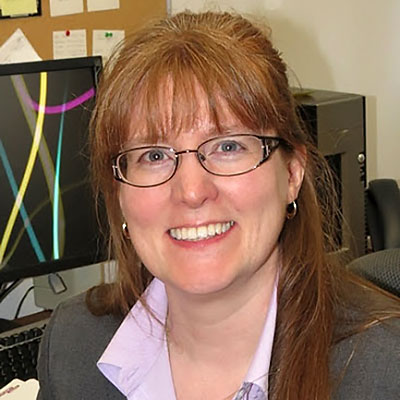
Lori Jones
$25,000 | Technology facilitated paper exam grading and distribution
Securely handing back paper based exams, quizzes or assignments for high enrollment classes across campus is logistically difficult and time consuming. By leveraging existing technology to scan hand-graded work and distribute digital copies the process becomes much more streamlined, more secure and confidential, less prone to risk and more convenient for students to receive timely feedback.
The proposal focuses on developing a solution for addressing this issue for CHEM*1040 and CHEM*1050 as a pilot but would also propose to put in place a solution that was scalable across campus.
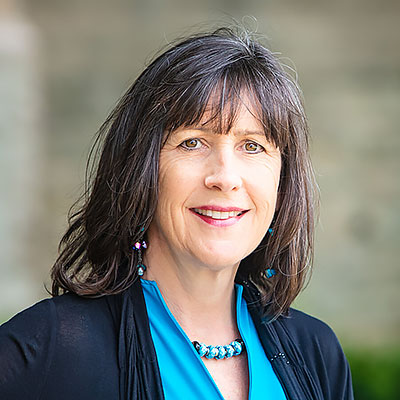
Mavis Morton
$17,000 | Developing, integrating, assessing and adapting CEL in a large undergraduate course
This proposal is to design, strengthen, monitor, assess and adapt a new academic initiative which introduces community engaged learning (CEL) to a large first year undergraduate course in sociology (SOC*1500 Crime and Criminal Justice). Using an outcome-based approach to learning, this initiative will substantially review and reframe learning outcomes in order to design a community engaged learning activity that provides students with an engaging way to demonstrate and account for their achievement of specified learning outcomes (LOs). These LOs will align with Ontario defined undergraduate degree level expectations, the University of Guelph’s academic mission, College of Social and Applied Human Sciences (CSAHS) priorities as well as program and course-specific outcomes.

Claude Naud
$30,000 | Educational development resource centre
Formal educational development and preparation have been largely overlooked at the regional campuses. As a consequence, new instructors are thrown into a challenging teaching environment without the benefits of an adequate preparation and professional support during the most demanding phase of their initiation into post-secondary institution. Not surprisingly both students and new instructors suffer greatly from the lack of instructional grounding so critical in providing a positive learning environment. Our more seasoned instructors often lack the necessary knowledge or skills to renew curriculum, design instruction, and implement new programs. As a result the quality of education is adversely impacted and so is the reputation of the University.
Consistent with the goals expressed in the White Paper, the Centre’s purpose would be to develop, organize, and facilitate the delivery of educational, instructional and academic leadership initiatives. The resource centre’s principal aim would be to facilitate, sustain, and support teaching, learning, and sound scholarly practices across the campus. Through the development of local subject matter expertise for teaching, instructor support mechanisms, technology integration in instructional practices, individual faculty personal professional development plans will lead to a strong and vibrant professional community of practice.
The acquisition of these skills are essential in ensuring that our current program renewal process of four diploma programs is successful in achieving our goal of substantially strengthening undergraduate teaching and learning at the regional campuses.
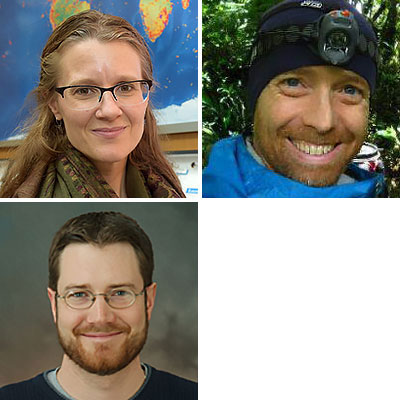
Sarah Adamowicz, Alexander Smith, Ryan Gregory
$8,000 | Enhancing experiential learning in the Arctic
The Arctic has many species not found elsewhere and a warming climate is predicted to have a particularly dramatic impact on this unique biodiversity. Understanding Arctic biodiversity has become an important part of the research and teaching at UofG, from first year to senior field courses to graduate research. We wish to expand opportunities for experiential learning about Arctic biodiversity by students in two courses (Arctic Ecology BIOL*4610 and Discovering Biodiversity BIOL*1070) by making use of two cutting-edge technologies: DNA barcoding and GigaPan imaging. DNA barcoding is a novel genetic method for species identification and discovery that was pioneered at the University. The GigaPan is a transformational piece of technology for creating, sharing and annotating high-resolution panoramic photographs. The digital products of each technology are publicly accessible and sustainably maintained; both are annotated through time by a community of experts and non-experets alike; and both connect the digital and natural worlds.

Art Hill
$25,000 | Development of a cross functional product development program and annual product show
We propose to synchronize three existing product development courses (NUTR*3390, FOOD*4700, and an existing interdisciplinary product development course currently offered through CME) to allow independent lectures, integrated tutorials, and creation of interdisciplinary product development teams. The synchronized courses will culminate with an annual product development show adjudicated by academic and industry product development specialists. LEF funding will be used to hire a part time MSc level person to integrate the material, develop learning strategies and outcomes for the product development projects, and secure sponsorships for the projects.
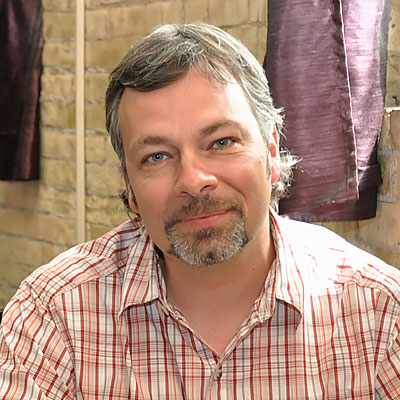
Bruce McAdams
$15,200 | PJ’s Restaurant, moving towards a more sustainable future!
This proposal outlines a plan to use the School of Hospitality and Tourism Management’s student run restaurant (PJ’s Restaurant in the Atrium) as a vehicle for student learning and research in aspects of environmental, economic and social sustainability. Currently run in a ‘conventional’ manner, PJ’s employs a minimal amount of ‘sustainable practices’ in its daily operation. Courses currently taught using PJ’s as a working restaurant laboratory do not cover any aspects of sustainability. It is proposed that during the 2011/2012 school year HTM and Nutrition students taking HOSP3090 will participate in the following:
- An evaluation of PJ’s current operation in regards to all aspects of sustainability
- Benchmarking of current practices through the measurement of energy consumption and waste
- Development of new curriculum for HTM3090 that would embed aspects of sustainability for future students
- Implementation of new ‘sustainable ’practices to transform PJ’s to a ‘model of sustainability
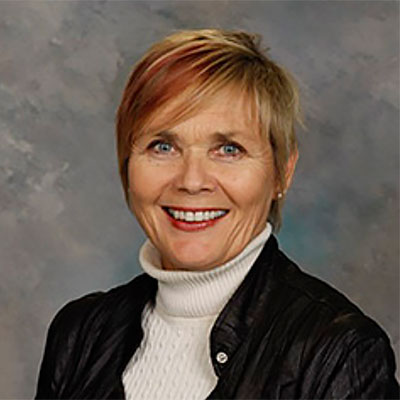
Irene Moore
$10,000 | Enhancing acquisition of essential skills through supplementation with online videos
This proposal enhances the education provided to veterinary technology students in both the regular and alternative delivery programs by providing complimentary audiovisual material to supplement the acquisition of essential skills. The Veterinary Technology program at the Ridgetown Campus is unique in North America as it is the only one that has accreditation by the Canadian Veterinary Medical Association, American Veterinary Medical Association, and the Ontario Association of Veterinary Technicians. All graduates of accredited programs must have documented that they have acquired a number of essential skills. A number of these skills can be demonstrated in several courses. To ensure consistency in both teaching and assessing these skills, standard operating procedures have been developed in a written format. We feel that by digitally recording these procedures and having them available to students when they are both on and off campus, we will improve the performance of the students when these skills are being assessed. Moreover, we will be conserving both instructor time as well as animal use.

Claude Naud and Art Schaafsma
$35,000 | Intercampus synchronous delivery of diploma level courses using technology mediated means
This pilot project will for the first time synchronize the delivery of highly specialized diploma courses remotely between multiple regional campuses, mediated by technology to give access to the most qualified instruction to students at regional campuses. Associate diploma students are among the most challenging cohorts of post-secondary learners to teach by remote access. This includes a high expectation for technically competent instructors, a strong desire towards real world experiential learning opportunities and also a tradition of hands on learning. As a result, limited distance education and learning has been incorporated into the associate diploma programs. This proposed project will be our initial attempt at multi-location course delivery which will serve as a benchmark for other possible distance models across our campuses.
This pilot and its associated infrastructure will also inform the potential to offer similar opportunities at the undergraduate (BBRM) and graduate (allowing more graduate students to conduct their research activities at regional campuses) levels. Courses with the same curriculum are delivered independently at different regional campuses. In several cases the best qualified subject matter instructor, who also has a research and KTT program closely related to the course being delivered is located at only one of the campuses. Typically, the other campuses are left with hiring local individuals contractually, potentially leaving students at those campuses at a comparative disadvantage. Furthermore there are a number of duplicate elective courses offered across campuses frequently with low subscription that could be consolidated through remote delivery. By this consolidation of resources and remote access to the most qualified instructors the associate diploma program can continue to offer a diverse selection of high quality and well subscribed electives.

John Phillips
$5,000 | CAD Club
CAD (computer aided design) Club is proposed. The purpose of this endeavour is to engage highly motivated students across disciplines and connect them with cutting edge CAD and related facilities on campus. Undergraduate and graduate students from engineering, fine arts, veterinary medicine, landscape architecture, physics and other units will be recruited to the club. The club members will have access to new and existing facilities in the School of Engineering and the new Fine Arts Haptic Lab. By creating a community of CAD literate users, researchers will also benefit by having access to highly skilled students to help them answer specific R&D questions.

Ann Wilson
$35,000 | Developing models for the use of e-portfolios in the fine and performing arts and in the humanities
The E-portfolio is an established pedagogical tool that has promising applications within the College of Arts. This project, a collaboration between the College of Arts and Teaching Support Services, will hire a resource person with expertise in the use of e-portfolios as a pedagogical tool. The resource person will work with units in the College of Arts to develop models for the effective use of e-portfolios as a learning tool in courses and to encourage faculty to use e-portfolios to support student learning. The College of Arts’ demonstrated curricular strengths in literacy and visual learning make it an ideal site for a more comprehensive adoption of pedagogically-focused e-portfolios. The intent of the project, through the development of models for the effective use of e-portfolios in courses, is threefold:
- to help students to understand the relations between courses within their majors or minors;
- to devise measures of student learning both within individual courses and within the curricula of various programs;
- and to help students to consolidate their learning actively with a tool that supports the recognition by students of what they have learned in a particular course in terms of content, methodologies and learning skills and how these aspects of learning translate to other courses and beyond the classroom.
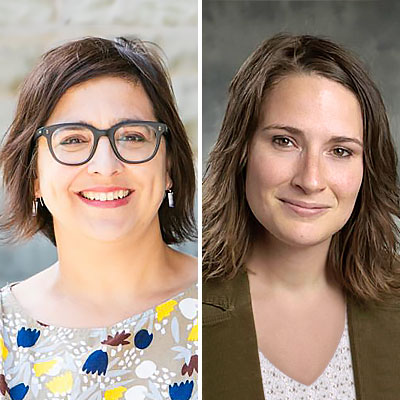
Tara Abraham and Sofie Lachapelle
$29,400 | Rethinking the HIST*1250 experience in the context of global awareness and a diverse classroom
HIST*1250 Science and Society Since 1500 needs to be re-envisioned in light of the relevance of science and technology within the contexts of globalism and internationalism, the culturally specific ways that science and technology have developed historically, and the remarkable diversity of the HIST*1250 classroom, which typically includes students from science and engineering as well as students from the humanities and social sciences. The project will develop new strategies for structuring and delivering the course to meet new pedagogical aims, and will generate a framework that is adaptable for all future instructors of HIST*1250.
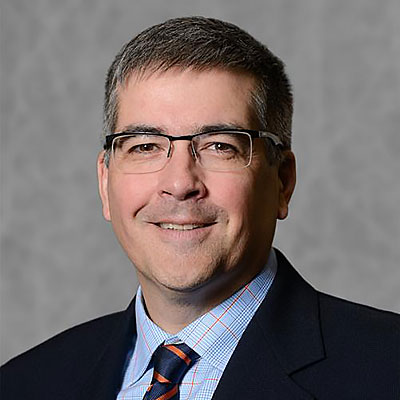
John Cranfield
$26,600 | Integrating internationalism into AGR#2400 “Economics of the Canadian food system”
One cannot study food and agriculture without understanding how they are situated in a global context. At the same time, a complete understanding of international development cannot be achieved without understanding the role of food and agriculture. Indeed, the links between food and agriculture and international development and a global perspective are critical to appreciating the issues faced by many in the world today. The proposed work aims to develop new delivery modalities that enhances the exposure of University of Guelph students to the global agrifood system and positions internationalism within AGR*2400 (Economics of the Canadian Agrifood System).

Gabriel Gauthier (in collaboration with the Centre for International Programs)
$10,000 | Enhancing Belgium partnership to increase student exchange
The Campus d'Alfred-Université de Guelph, in collaboration with the Centre for International Programs, has been awarded funding to translate into French our pre-departure material titled "Ready, Set, Go." This translated document will enable francophone students who attend the College d'Alfred to take part in international exchange opportunities including, in particular, the exchange available at the Haute École Provinciale de Hainaut - Condorcet in Ath, Belgium.
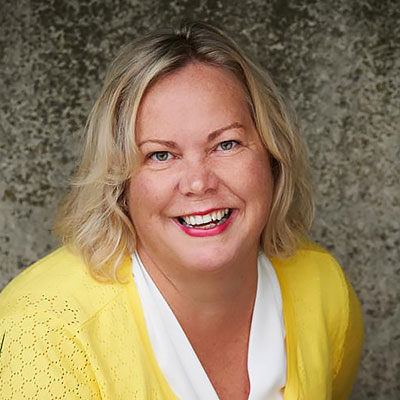
Helen Hambly Odame
$25,000 | Teaching and learning communication process
Communication studies involving dyadic and group processes for rural community and international development have been part of the undergraduate curricula offered at UoG for 45 years. Our courses recognize that cross-cultural and international issues underlie information, communication and media for equitable and environmentally-sound development in today’s world. We propose to
- expand enrollment of international open learning students in these courses
- strengthen existing partnerships with international faculty in teaching and value-adding to these DE courses
- stimulate international networking that sustains new content and learning processes

Natasha Kenny, Barbara Christian
$35,000 | International teaching assistant peer mentorship program
Although many international students excel in their role as teaching assistants, the cultural and pedagogical contexts within the Canadian classroom can vary substantially from that of their home country. ITAs often face external pressure to improve their communication and teaching skills, but seldom have access to the necessary programs, resources and on-going support to meet the demands of a departmental teaching assistantship. The goal of this project is to develop and implement a peer mentorship program for International Teaching Assistants at the University of Guelph. The program will represent a collaborative partnership between TSS and the Library’s Learning and Curriculum Support team.

John Zandstra
$5,000 | Development of an international travel course in the Agriculture Diploma Program, based on an experiential learning model
Presently, there are limited opportunities for students in the Agriculture Diploma program at Ridgetown Campus to be directly exposed to international issues. Given that increasing internationalism and global awareness are some of the University’s pedagogical goals, we plan to develop an experiential learning-based course which includes a 1 week study tour to the US mid-west. Destinations include agri-business, primary producers, supporting industries and market facilities which have an influence on or compete with Ontario agriculture.

Daniel Ashlock
$100,000 | An integrated curriculum for mathematics and the physical sciences
It is proposed to develop a first year curriculum that integrates the teaching of chemistry, mathematics, and physics including elements of computer science and statistics. Integration of these topics enhances student retention, student mastery of skills, and resolves interdepartmental topic sequencing issues across the curriculum. The curriculum will teach across five disciplines; develop active web content for instruction, review, and self-study; incorporate tutorials to compensate for changes in high school instruction; and yield portable demonstrations and web materials that are also usable for recruiting. An all-CPES team will develop this curriculum.

Brian Husband
$25,000 | Bringing biology to life: re-inventing the foundational biology experience at University of Guelph
Biology in first year is a foundational subject for 41% of all entering students on campus and a portal to discovery in 36 different biology majors. The College of Biological Science proposes to transform this experience with a network of integrated, hybrid-style, problem-driven courses that will foster learning within and among three complementary areas: Human Health, Biodiversity, Molecular and Cellular Biology. Using multiple learning modes (small group, lecture, online-assisted activities) and shared small group tutorials, the network will emphasize: orientation to university learning, opportunities for problem solving and active learning, and attention to contemporary skills of biological inquiry. Genuine problems in biology will serve as the backbone around which students develop and apply skills of inquiry and, in the process, build an understanding of broad concepts in biology.

David Prescott
$25,000 | Transition and engagement: A foundation year of business education
This proposal outlines a radically new approach to the first year of the B.Comm. degree program at the University of Guleph. Its primary objectives are:
- to facilitate the transition from high school to university education
- dramatically increase student interest and engagement in business studies
- improve first year academic achievement
- promote learning outcomes typically associated with senior undergraduate courses such as written and oral communication skills, leadership and teamwork
- promote an awareness of the full range of business organisations and their relevance to the social and economic problems of Canada and the world
- assist students to make informed choices regarding their future area of specialization within the B.Comm. degree program
- provide a solid academic foundation for subsequent studies
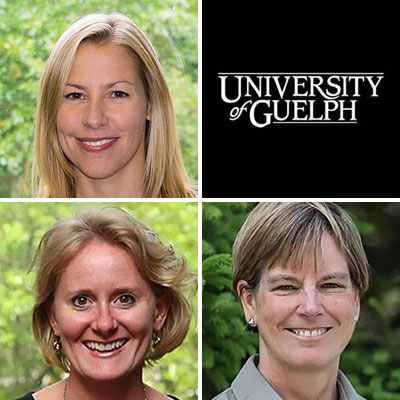
Leah Bent, Jim Dickey, Lori Ann Vallis, Michele Oliver
$29,826 | Innovative tools for large scale application of bioengineering laboratories
The undergraduate laboratory experience is invaluable in providing students with independent thinking and problem solving skills in a small group setting. HHNS has been innovative by providing several key courses where students have the opportunity, in a laboratory setting, to apply the knowledge obtained in lecture. However, laboratory equipment and facilities are a major limitation to the current laboratory offerings. This proposal aims to enhance and extend the laboratory experience not merely by replacing dysfunctional equipment, but by providing state of the art equipment in a multidisciplinary fashion for students in HHNS, engineering and the influx of students through the Guelph-Humber initiative. The proposal also aims to support the new and growing field of bioengineering. The marrying of biological and anatomical information with engineering practice can lead to new and innovative developments with future objectives involving the engineering of new devices. We need to begin by getting students involved at the undergraduate level.

Don Bruce, Daniel Chouinard
$20,000 | Introductory Chinese (Mandarin), I & II
The College of Arts now offers Introductory Chinese (Mandarin) I and II to interested students: this course is for students with no previous knowledge of the language and is not open to native speakers. The course will include instruction in Chinese language (Mandarin) and culture, and will give students an initial entry point into the most widely spoken language in the world, into one of the oldest and richest human cultures, and into the most rapidly expanding economy in the world. These courses will aim at providing the student with basic vocabulary and oral/aural skills in Mandarin; basic skills in reading and writing will also be developed with approximately 400 characters learned in a year’s study. Complementary courses in History, Philosophy and other disciplines in the College of Arts and in the College of Social and Applied Human Sciences provide additional points of access to Chinese culture for UG students.
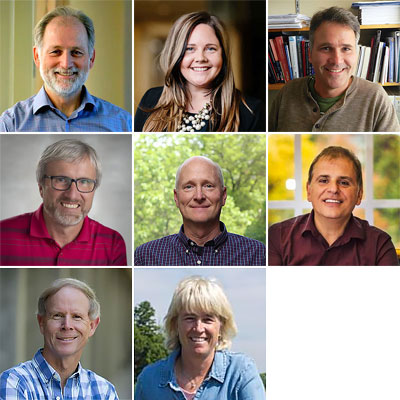
Elliott Currie, Melanie Lang, Andreas Boecker, Art Hill, Bill Bettger, Massimo Marcone, Al Sullivan, Vanessa Currie
$13,500 | Interdisciplinary product development course
This interdisciplinary course provides comprehensive and experiential training in development of new products and services based on agricultural products. It develops a thorough understanding of the innovation process involving all stages of the supply chain. Collaboration of university departments and industry establishes a unique multi-disciplinary learning experience. Participating disciplines include business, food sciences, health and nutritional sciences, plant agriculture, crop horticulture, agronomy, food and agricultural economics, and marketing and consumer studies. Student teams will create new products or services and develop plans to produce and market them. Outcomes will be evaluated by a panel of academic and industry product development specialists.

Mildred Eisenbach
$20,000 | Academically enriched residence hall and expansion of academic clusters
Given the success of the academic clusters in residence, there is support for offering a cluster experience to all first-year students. It is recommended that one residence hall be identified as a pilot project for offering clusters to new students who have not selected this option. All staffing and programming would be implemented in exactly the same manner as in the present academic clusters. At the completion of the 2007-08 academic year, the academic outcomes and retention of this group of students would be compared to those in self-selected clusters and the new student body, at large. Programming, participation and student reports would also be considered to evaluate the success of the project, and the potential for expanding the academic cluster format to all first-year students living on-campus.
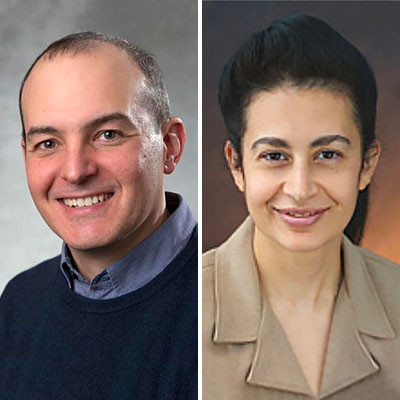
S. Gregori, Dalia Fayek
$2,800 | Virtual educational laboratory for interactive electronic systems exploration
With this project we aim at studying an innovative instructional experience that meets the challenges of educating engineers in the 21st century. For this purpose, we will design a virtual educational laboratory that is as good as the best in the world in establishing a participative and creative relation of the engineering students with learning process and modern complex electronic systems. The objectives of this project are to use state-of-the-art software tools and equipment, re-invent the way we package and deliver engineering concepts in a practical and relevant way, and immerse undergraduate students in exciting design challenges and genuine research opportunities.

Jamie Gruman
$20,250 | Engaging management students with work-based learning
There is a growing consensus that the traditional lecture-based approach to management education, which focuses on lecturing to students about pre-existing bodies of knowledge, may not be the most effective strategy for teaching students about management. Work-based learning is an alternative approach to management education that focuses on active student learning as opposed to passive instruction, and involves having students start and run small “companies.” Students are able to experience real managerial issues, apply their classroom knowledge to their experiences, and develop genuine management skills. LEF funds provide matching seed money for some of these “companies” and help to address calls for more relevant management education.
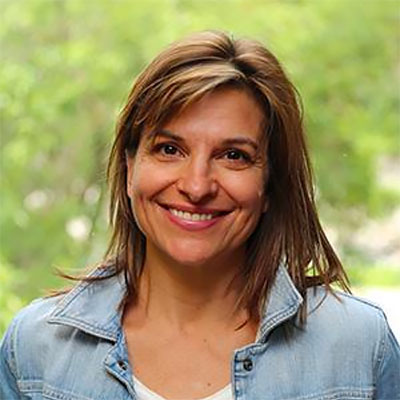
Lorraine Jadeski
$9,905 | Digital imaging in anatomy
The overall goal of this project is to create digital images of anatomical specimens; images will be used in numerous applications. These include production of digital and printed versions of a dissection-based anatomy atlas. Images will also be used:
- in lecture presentations
- in a ‘flash card’ approach for student study
- for on-line student study and testing
While these images are being prepared to enhance what is primarily laboratory-based learning for students in our anatomy program, additional fields of study can benefit (e.g., biomechanics, bioengineering, psychology). Use of the digital images will not be restricted to this institution. With this proposal, we are requesting funds for the acquisition of a high quality digital camera, as well as the appropriate computer and software necessary for digital imaging, and page layout and design.

Jay Lampert, Andrew Wayne
$10,000 | High enrolment first year philosophy courses
As first year Philosophy courses have increased dramatically in enrolment over the last 10 years (from 60 students per course to 150-300 students per course), traditional teaching methods are no longer adequate for conveying the skills of intense discussion and interactive reasoning that are so crucial for a philosophical education. This project will study new ways of generating philosophical discussion in large classes, and will produce ideas and tools that can be used in future years by all philosophy department faculty members.

Clare MacMartin
$9,999 | Building the BASc Program: Curriculum Innovation in Child, Youth and Family and in Adult Development: Health and Well-Being
Through this proposal we plan to create a mechanism for integrating a new first-year course FRHD*1100 (required for all BASc majors) with revised experiential learning courses in the third and fourth year. Focusing on the Child, Youth and Family (CYF) and Adult Development: Health and Well-Being (ADFW) majors within the BASc program, the goal is to create a capstone learning experience for students that is rooted in a set of personalized learning goals established in the new hybrid course in first year, cultivated throughout their program, and realized in the experiential learning courses in their final semesters.
